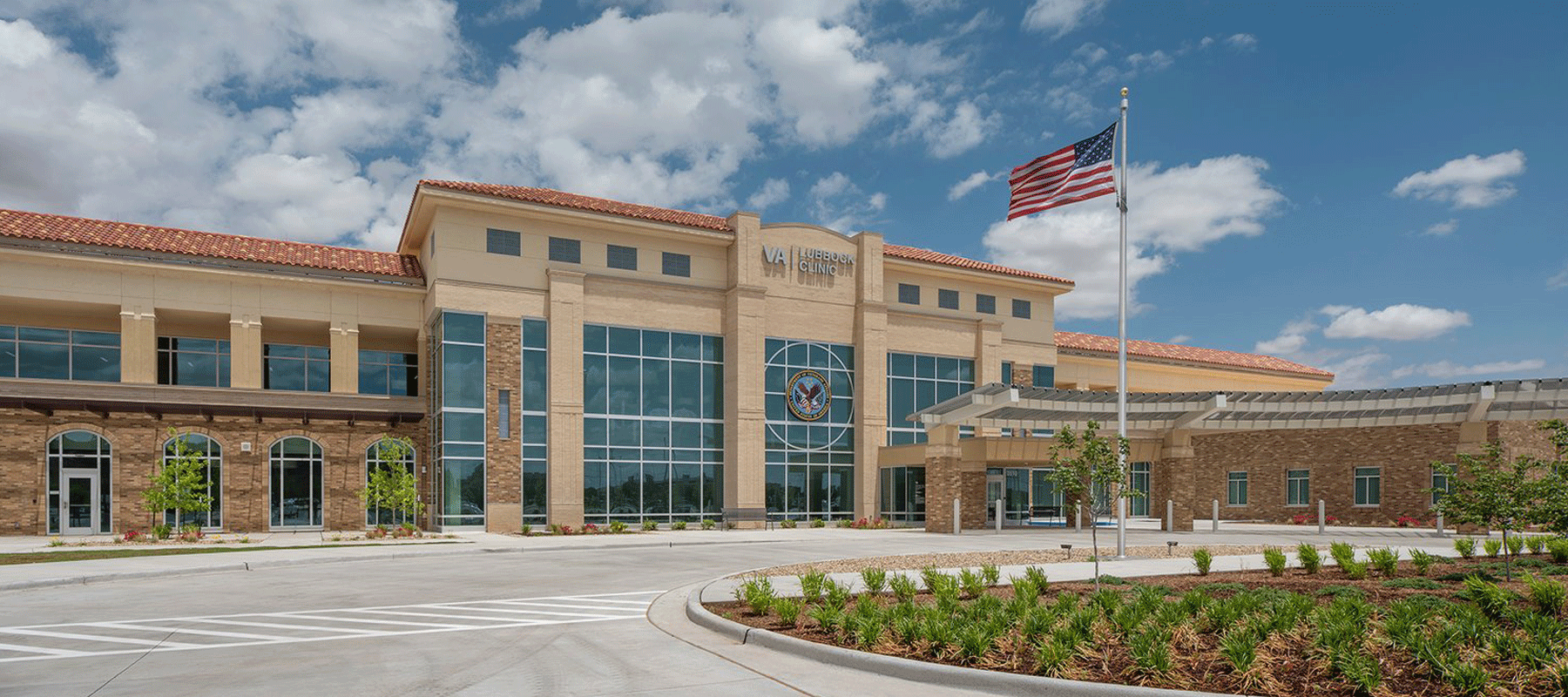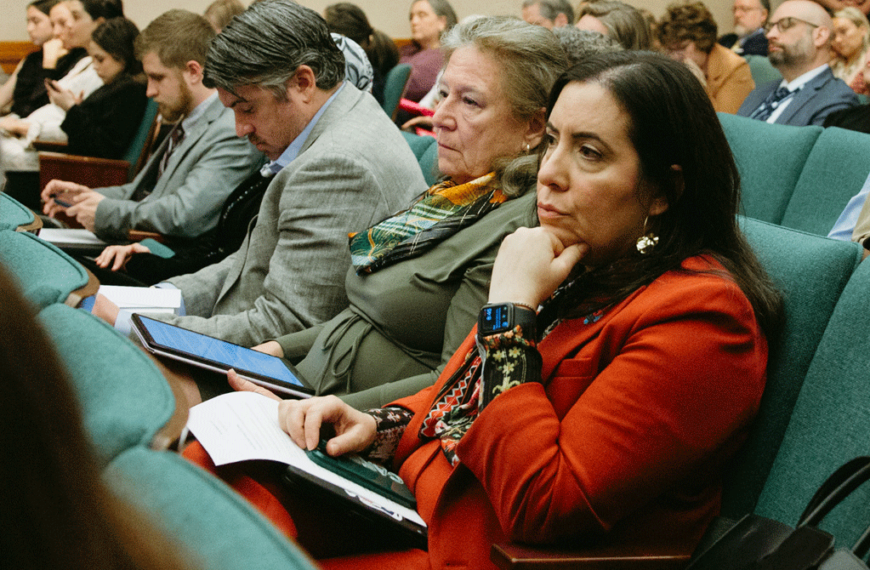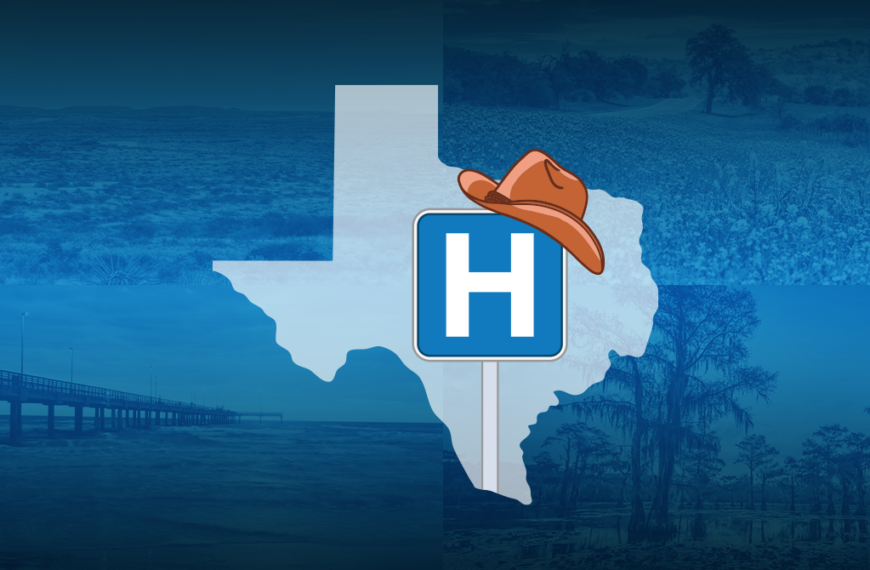Each year on Veterans Day we pause to honor veterans of the United States Armed Forces and their service to our country. As we thank these military heroes for the sacrifices they’ve made to protect our freedoms, we’d be remiss to not recognize the health care workers in our Veterans Affairs (VA) hospitals and health systems who take care of these heroes on the home front.
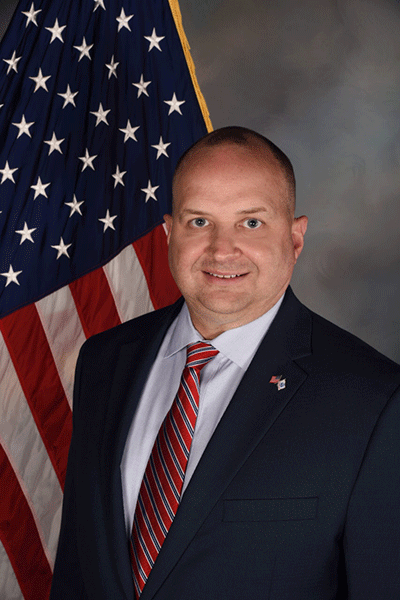
Texas has the largest population of veterans in the U.S., with more than 1.5 million military veterans living across the state. Thankfully, Texas is also home to seven VA health care systems, five VA medical centers and over 80 VA facilities that provide care to these veterans. In celebration of Veterans Day, THA sat down with an Army veteran and VA health system director to discuss military experience and VA health care in Texas.
Director of the Amarillo VA Health Care System, Rodney S. Gonzalez, M.D., fused his passions for military and medicine to build a successful career in service and health care. Born and raised in Riverside, California, he credits his Christian faith and family upbringing for his success. A West Point graduate, Dr. Gonzalez joined the United States Medical Corps and then faced deployments in Kuwait and Iraq during pivotal moments like 9/11. Dr. Gonzalez served in various roles in the military health system, from brigade surgeon to chief of family medicine clinic. Post-retirement, he assumed the role of director of the Amarillo VA Health Care System where he continues to serve veterans. Dr. Gonzalez and his family currently reside in Amarillo.
Here’s what Dr. Gonzalez shared with THA:
Can you describe your background in the military and in health care?
I am a Family Medicine physician. Originally from Riverside, CA, I attended the United States Military Academy (West Point) right after high school. While at West Point, I applied and was selected to go straight to medical school on the Health Professions Scholarship Program in the Army. After graduating New York Medical College, I did a Transitional Internship at William Beaumont Army Medical Center (El Paso, TX) and then a Family Medicine Residency at Martin Army Community Hospital (Ft. Benning, GA – now Ft. Moore, GA). Later on, I did my Primary Care Sports Medicine Fellowship with the military’s National Capital Consortium (out of Ft. Belvoir, VA and the Uniformed Services University of the Health Sciences).
What led you to join the military?
Somewhere in middle school when studying about West Point, I thought it would be a great opportunity to attend. I had a cousin, that I did not know well because he was from Michigan and I was in California, who graduated from West Point a couple years prior to my middle school. I was also aware of the cost of college and medical school and concerned that the expense would be too much, so was looking at other options.
Why did you pursue a career in health care?
I have been interested in being a doctor as long as I can remember. Even when I was a very young child, I remember saying I wanted “to grow up and be a doctor.” I don’t recall any specific event or experience that led me in that career path. My parents were not in the military and not in health care.
Can you describe your experience in the VA health system?
It is an absolute honor working here at the Amarillo VA with staff that have the same passion as me in caring for our Veterans. The Amarillo VA Health Care System consists of the Thomas E. Creek Medical Center and four Community-based Outpatient Clinics (CBOC) in Lubbock, TX; Childress, TX; Dalhart, TX; and Clovis, NM. We are impacting the lives of more than 25,000 Veterans throughout the Texas Panhandle and South Plains, as well as the Oklahoma Panhandle and Eastern New Mexico.
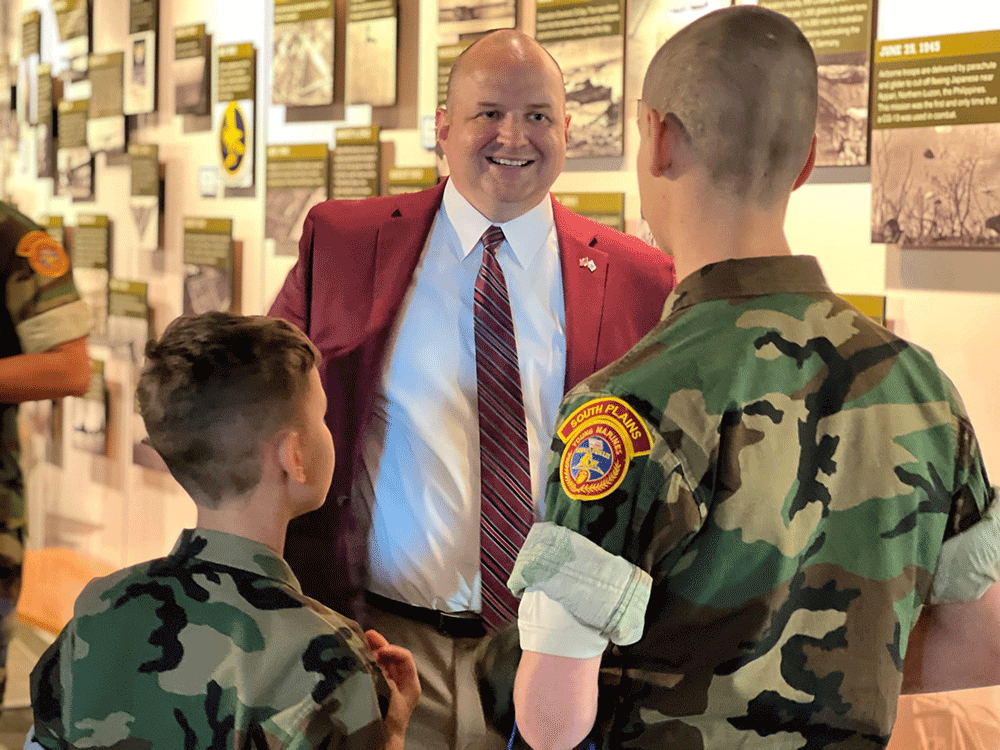
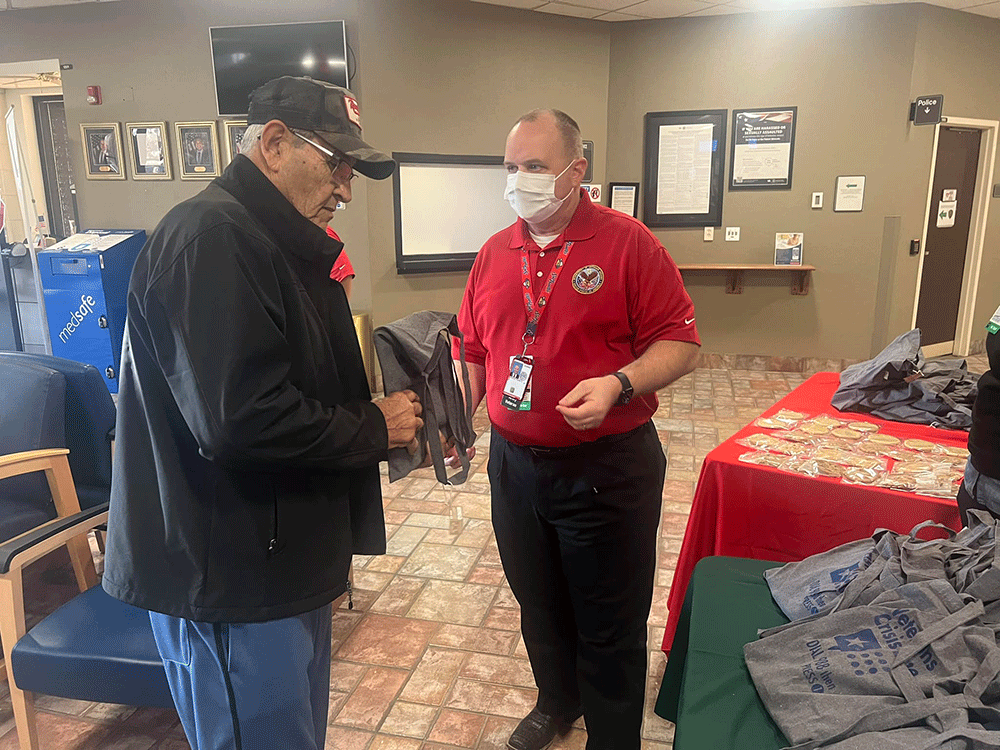
When I began looking at opportunities after retiring from the military, my wife and I discussed the different avenues – working in a military facility, civilian opportunities and others. I told her I enjoyed and was passionate about caring for the military service members, but I also liked being a leader in the health care facility. Because I knew military facility’s leaders are typically in the military, I considered other opportunities. While at Walter Reed, the DC VA Medical Center Director and I had multiple conversations and that led me to thinking about a career in the VA.
I was at a conference in fall of 2019 and met a recruiter for the VA who was also attending. He told me about some opportunities, and that eventually led me to being selected and accepting the position at the Amarillo VA.
I retired from the military and arrived at the Amarillo VA in June 2020 to be the Executive Director of the Amarillo VA Health Care System. My final job in the military was at Walter Reed National Military Medical Center where I was serving as the Deputy Director/Chief of Staff. Obviously, June of 2020 was still at the beginning of the COVID pandemic. This has been my first and only position in the Veterans Health Administration (VHA).
What has had the largest impact on your career in health care?
Throughout my career in Army Medicine, I had multiple experiences that impacted me. However, during my time as a teaching staff member of the Martin Army Community Hospital Family Medicine Residency Program, I had a Program Director, Mark Higdon, that gave me various opportunities to lead. Whether it was a project he let me take the lead, or when a clinical leadership opportunity opened, his support allowed me to step away from my role, then as Assistant Program Director, to lead in another area. I had many leaders in the military, who allowed me to pursue opportunities in leadership. This taught me the importance of giving emerging leaders the chance to try something new, something different, something challenging.
I also had a supporting family because my wife gave up her career to move with me from location to location as I took various roles. I don’t think it would have been as easy to do without the support of my wife, Rebecca.
What has been the biggest challenge you’ve faced while working in health care?
For me, the biggest challenge was coming in as a senior leader to an organization I have never worked in during the pandemic which changed operations. Not only was I having to learn a different health care system, but operations were different because of the pandemic. The executive team here helped me through the transition at VA.
When you come into these roles, you are often attending several new executive courses, but those courses were now being done virtually, so you didn’t get the face-to-face contacts you might between meetings or in the evening. And because I came from outside the VA, I didn’t have a list of “go-to’s” for the challenges seen in health care organizations. But, as mentioned above, the Executive Leadership Team at the Amarillo VA assisted me in my transition.
Now, while COVID made things challenging, one thing it did was help integrate the VA with the community. Obviously, we are charged with taking care of Veterans, but we also have a “fourth mission” to help the community respond to emergencies.
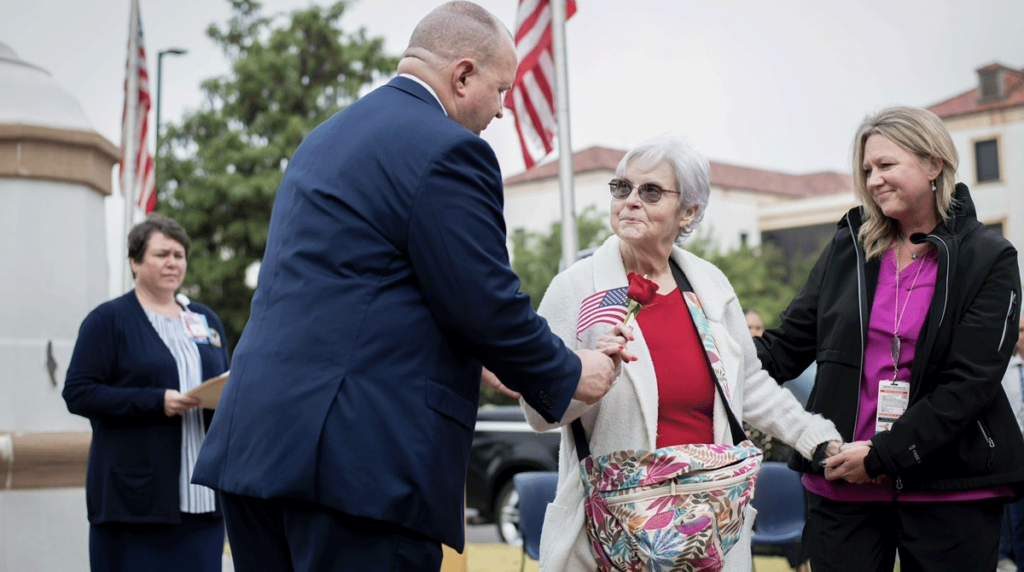
When I arrived, there was a weekly “COVID Update” news conference that ran through the mayor’s office. She had various leaders with the hospitals and public health on it. This quickly led me to meeting fellow leaders in health care for the Amarillo and extended community. While many I only met virtually for the first year, when we finally met face-to-face, it felt we already knew each other.
What characteristics have you found to be important as a leader in health care? (Or) What advice would you share with other leaders in health care?
One thing I have learned in my experience in the military and at the Amarillo VA is the importance of having the “right people around the table.” You need to ensure you are being inclusive of the many aspects of health care. It is too easy to put on blinders or work through a stove pipe pretending your actions and decision will not impact others around you. However, that is often not the case.
Equally important is to have people who will disagree with you and speak up about other options. I know I do not know everything about running a health care system and the things that make a health care system work. But I need to empower those and listen to those who are the experts in their area. When everyone around the table is nodding yes to your idea, you better ensure you are looking for the nay-sayer. Ones who challenge your decision or question your actions make you think deeper about the reasons why you are doing it. Thus, you may find out it is not the right thing or there is a better way. And it helps reinforce you are doing the best for the organization.
I have my “Director’s Expectations” that I talk about with our new employees, and it is the background on my computer screen. It reads:
- We serve patients (Veterans) and their families;
- Take care of our people (staff);
- Safety, Quality, Access;
- Empower the Experts;
- Life Balance; and
- Excellence in all we do.
Related articles from The Scope
2025 Newsmakers in Texas Hospitals
Sponsored by Envision Healthcare, THA’s Newsmakers are hospital executives and…
THA’s 2025 Session in Review: Outcomes for Texas Hospitals
Medicaid talks in Washington, D.C., measles in West Texas and…
Accepting Nominations for THA’s Boards, Councils and Committees
Now through July 3, members can nominate Texas hospital leaders…
National Hospital Week 2025: Appreciation and Awareness
National Hospital Week is a time to celebrate health care…
Women to Know in Texas Hospitals, Health Care and Public Policy
The 89th Texas Legislature is underway and there are a…
Nomination Period Now Open for Texas Hospital Awards
Every year, the Texas Hospital Association recognizes the outstanding contributions…
